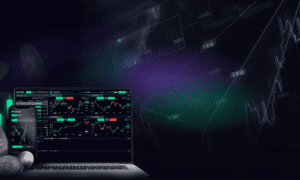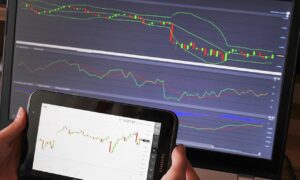The forex market is rife with potential opportunities, attracting traders with its high liquidity and round-the-clock operation. Among the various attractive elements, leverage stands out prominently. While leverage can be a useful tool to magnify returns, it’s a double-edged sword that can amplify losses just as dramatically. Let’s explore why high leverage can be a pitfall for forex traders and how its allure can lead to devastating consequences.
Forex Leverage: The Basics
The Concept of Leverage
In the forex market, leverage allows traders to control larger positions than their account size would ordinarily permit. Essentially, it’s a loan provided by the broker to the trader, enabling the latter to open trades that significantly exceed their initial investment.
The Drawbacks of High Leverage
Enhanced Profits, Amplified Losses
Leverage is indeed a powerful tool in the hands of a knowledgeable trader, magnifying potential profits. However, the same leverage multiplies the losses if the market moves against your position. Therefore, using high leverage without proper risk management can drain your trading account rapidly.
Margin Calls and Forced Liquidations
High leverage in forex trading comes with the risk of margin calls. If the market moves against your position, you may need to deposit additional funds to maintain the required margin. Failure to do so may lead to forced liquidations, where the broker closes your positions, resulting in substantial losses.
Understanding the Role of Volatility
The Volatility Trap
Forex markets are known for their volatility. While this volatility presents trading opportunities, it also adds to the risk when trading with high leverage. A sudden market swing, which is not uncommon in forex trading, can result in significant losses when large positions are leveraged.
Market Gaps and Slippage
Market gaps often occur in forex markets due to economic news releases or during the weekend when the market is closed. When the market reopens, it may be at a significantly different price, causing what is known as slippage. High leverage in such situations can magnify losses, as the trade may be closed far from the intended stop loss level.
Assessing the Psychological Implications
Impulsive Trading and Overtrading
High leverage can lead to impulsive trading decisions. The prospect of making substantial profits from small price movements may compel traders to take trades without proper analysis. This situation often results in overtrading, a common pitfall for many forex traders.
Increased Stress and Anxiety
Using high leverage invariably leads to higher stress levels. The fear of losing significant capital on each trade can cause anxiety, leading to poor decision-making. Trading under stress can be mentally exhausting and lead to a lack of concentration, causing mistakes and potential losses.
Appreciating the Importance of Risk Management
Importance of a Balanced Leverage Strategy
Every forex trader should understand that leverage is a tool, not a guarantee of success. Using leverage responsibly involves recognizing its potential for both profit and loss. It’s crucial to develop a risk management strategy that considers the amount of leverage suitable for your trading style and risk tolerance.
Emphasizing on Capital Preservation
The primary goal of any trader should be capital preservation. High leverage poses a direct threat to this goal. It’s far more beneficial in the long term to focus on steady, consistent profits rather than chasing large, quick gains through excessive leverage.
Regulatory Considerations and Leverage Caps
Regulatory Safeguards
Recognizing the dangers of high leverage, many regulatory bodies around the world have imposed leverage limits. For instance, in the European Union and the United Kingdom, retail traders’ leverage is capped at 30:1 for major forex pairs. These regulatory safeguards aim to protect traders from the potentially disastrous impacts of high leverage.
Beware of Offshore Brokers
It’s worth noting that some offshore brokers may offer extremely high leverage, sometimes as much as 1000:1 or even 2000:1. While these offers may seem enticing, remember the risks associated with high leverage. Moreover, these brokers often operate with little regulatory oversight, adding an additional layer of risk to your trading activities.
The Path Forward: Education and Responsible Trading
The Role of Education
In the realm of forex trading, knowledge truly is power. It’s crucial to educate yourself about the potential risks and benefits of leverage. Understanding how to calculate and control leverage can help you make more informed trading decisions and protect your trading capital.
Responsible Use of Leverage
Using leverage responsibly is a cornerstone of successful forex trading. Starting with lower leverage allows you to understand its impact on your trades while limiting potential losses. As you gain experience and confidence, you may choose to increase leverage incrementally, always keeping in mind the risks involved. In conclusion, high leverage can be a dangerous lure in forex trading. Its potential to magnify profits is equally matched by its capacity to amplify losses. Therefore, it’s vital to approach leverage with caution and respect, using it as a tool to assist your trading rather than as a shortcut to quick profits. Remember, in the world of forex trading, slow and steady truly does win the race.



































